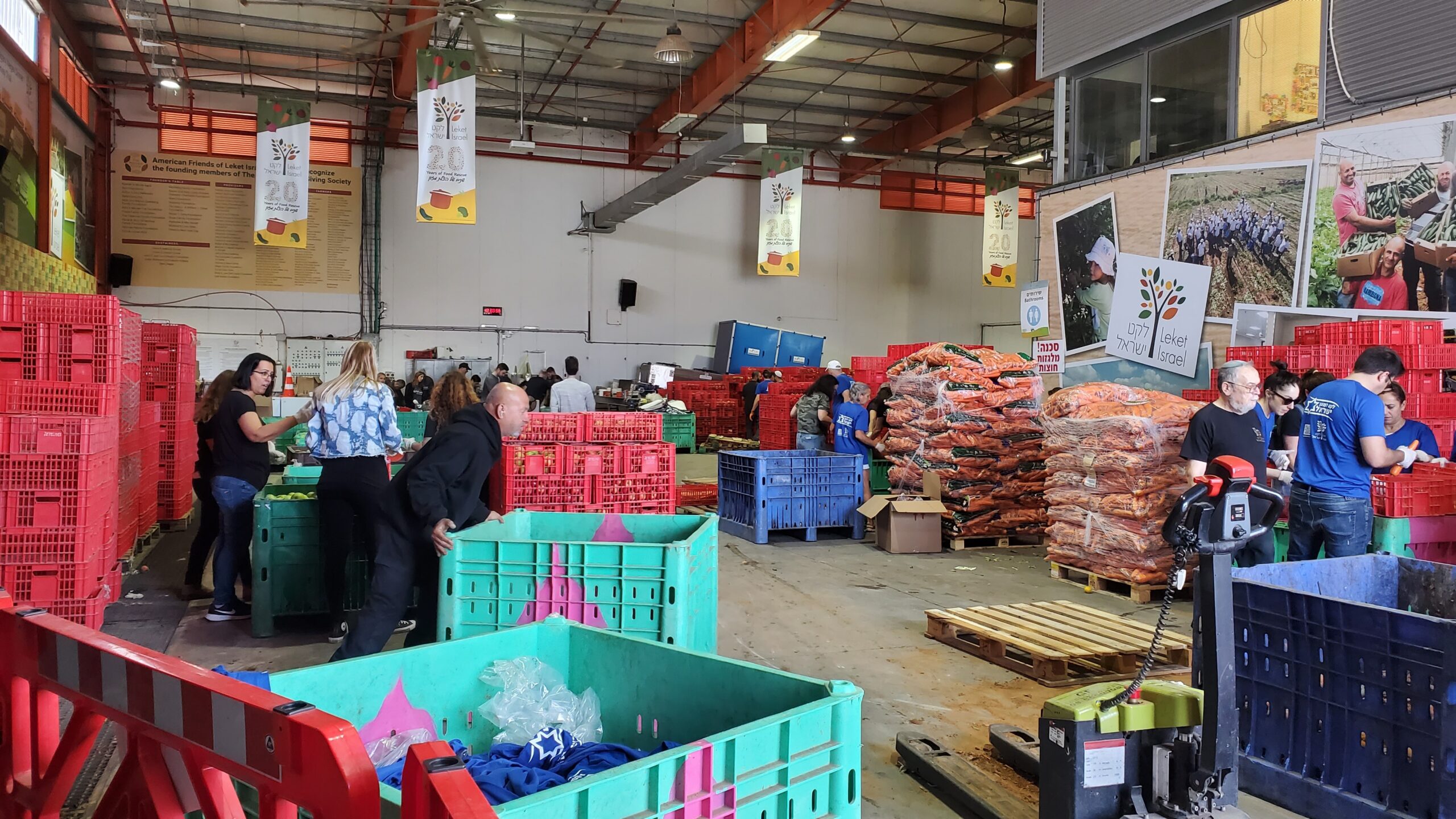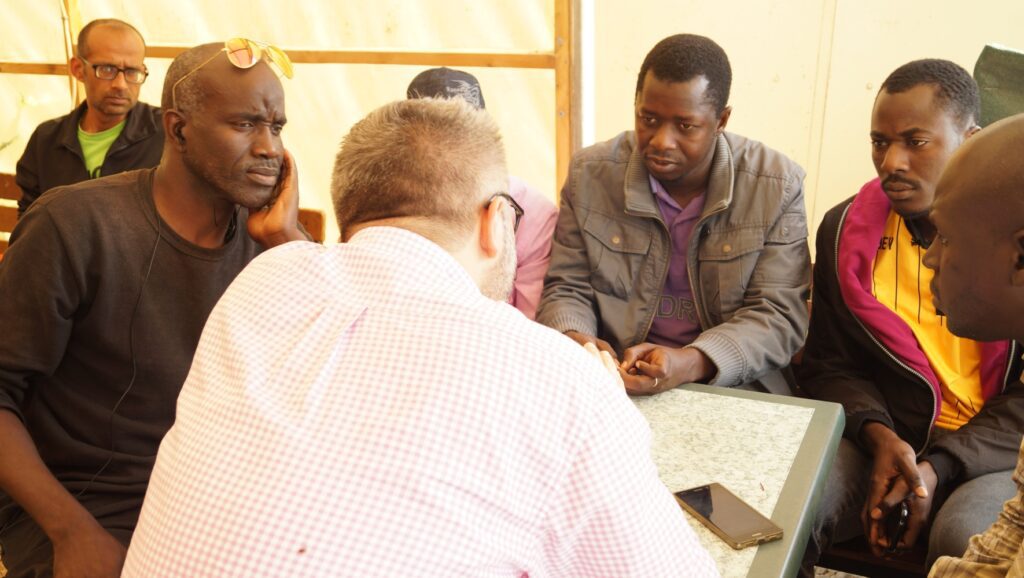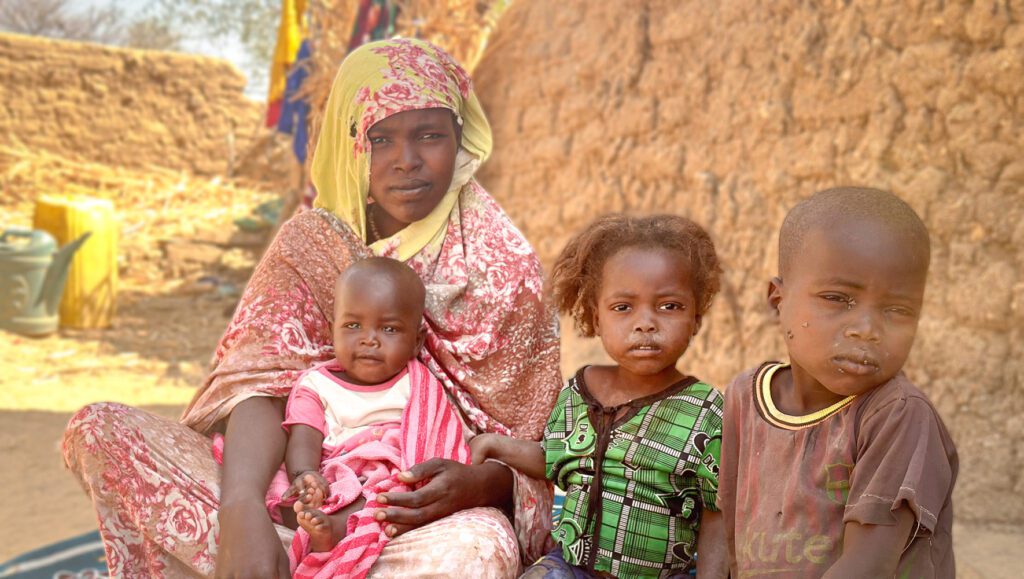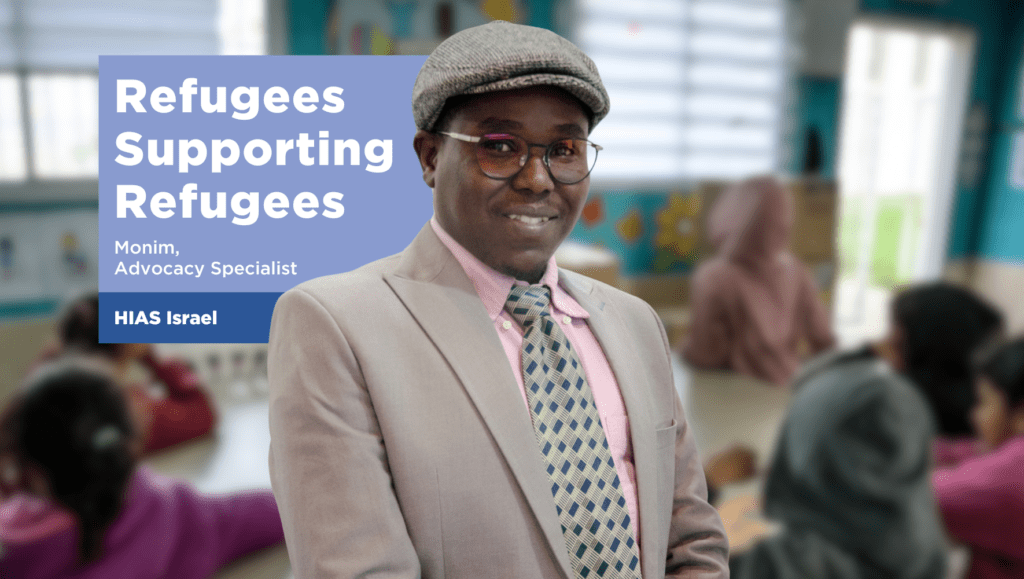
The day after the end of the ceasefire in late November, I sat in a concrete-reinforced stairwell in Tel Aviv that echoed with the blaring of an air raid siren, waiting for the sound of Iron Dome missile defense interceptions. I had come to Israel for about a month as part of HIAS’ emergency response, and had spent my time coordinating partnerships and developing ways to work with local organizations to help some of the estimated 250,000 displaced Israelis.
Before coming to work at HIAS in the U.S. in 2018, I lived and worked in Tel Aviv alongside the asylum seeker community from Eritrea and Sudan. I made aliyah, which gave me citizenship, and though my work drew me to eventually return to the U.S., I will always consider Israel to be my other home.
The Israel I’ve returned to, though, is not the same one I left. The streets are quieter: crowd sizes are moderated by the amount of bomb shelter space available, and many shops and restaurants have shortened their hours to accommodate staffing shortages, as so many young people have been called into the army reserves. I hear the stories of war not just on the news, but in the streets, at the market, and in my own hotel, where evacuees from Sderot and Kiryat Shmonah are being housed.
But the Israeli spirit of working toward a better future is also palpable. All over Tel Aviv signs and posters read “חזקים ביחד” — strong together. Throughout the country, people who lost loved ones, homes, and more have organized to meet the needs of their neighbors and communities.
Sivan Carmel, HIAS Israel’s Country Director, says she has found hope in how the asylum seeker community — with whom the HIAS Israel team has been working for the past 15 years — has been organizing donations and volunteering to give back to displaced Israelis. Refugee-led organizations such as Eritrean New Hope Organization, the African Students Organization, and the Sudanese Community Centers organized volunteers and in-kind donations to meet the needs of displaced Israelis and rescued produce from farms in the south, so that it could be distributed to nonprofits and municipalities across Israel by HIAS’ partner Leket, the National Food Bank.
All over Tel Aviv signs and posters read "חזקים ביחד" — strong together.
The impact of HIAS’ partnerships is wide-ranging. For example, we work with ERAN, which operates a national mental health hotline, and ESRA, Israel’s largest English-speaking community, which is distributing cash payments to help families affected by war to meet their basic needs. Some of the people helped by HIAS include a family who had their home and car hit by rocket fire and a family whose house was infiltrated by terrorists, with some family members killed and others kidnapped to Gaza.
Meanwhile, our partners who support underserved communities allow us to reach a greater depth of services for people who exist more on the margins of Israeli society.
Community centers working together with the African asylum-seeking community, such as the Jerusalem African Community Center and the Negev Refugee Center, are using HIAS support to provide psychosocial care, food and non-food items, cash and food vouchers, and safe spaces to protect families and children. When Nitzana Village hosted 80 Eritrean individuals who were displaced from the south at the start of the war, HIAS not only directly distributed basic necessities to the evacuees, but also partnered with the Jewish Agency to provide each family with warm meals and therapeutic activities for both children and adults.
Asylum seekers from Eritrea and Sudan, many of whom have been living for a decade or more in Israel, have told me that they are Israeli in every sense but their status — their children speak Hebrew and attend Israeli schools, they celebrate with Israelis during times of joy, and they feel the pain of dark times like those that have followed the terrorist attacks of October 7.
HIAS continues to assist those in some of the most dangerous situations, such as those at Beit El-Meem, a home for all gender and sexual identities in Israeli Arab society that supports both Palestinian citizens of Israel and Palestinian asylum seekers from the West Bank. The home provides food and other basic necessities, cash assistance, psychosocial support sessions, and trainings in emergency preparedness, first aid, and other safety measures that allow the LGBTQ Arab community to navigate these especially dangerous times.
Thanks to the influx of support from donors across the world, HIAS’ impact will only continue to expand over the coming months. More help is still needed, and HIAS Israel is ready to support forcibly displaced people in whatever ways they can.


